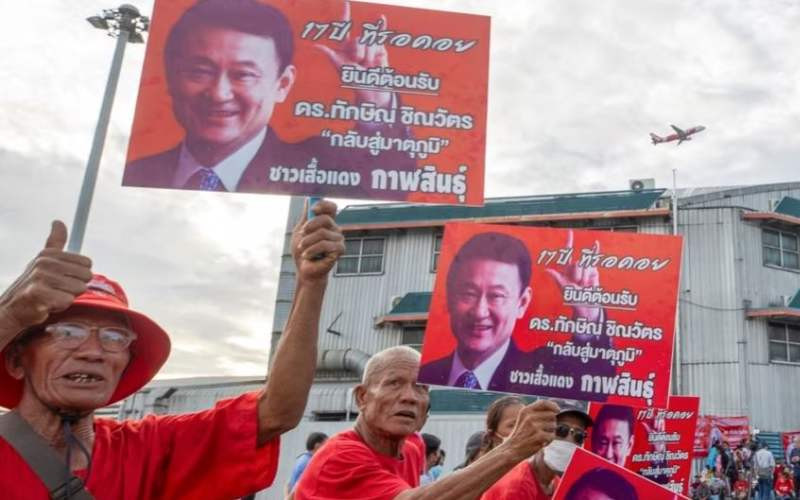×
The Standard e-Paper
Kenya’s Boldest Voice

Divisive ex-Prime Minister Thaksin Shinawatra returned to Thailand on Tuesday after years of self-imposed exile to face criminal charges on the same day that a party affiliated with him plans to start forming a new government.
Thaksin has said his decision to return has nothing to do with an expected vote in Parliament later in the day on a candidate from the Pheu Thai party for prime minister. But many believe his arrival is connected to the party's pursuit of power.